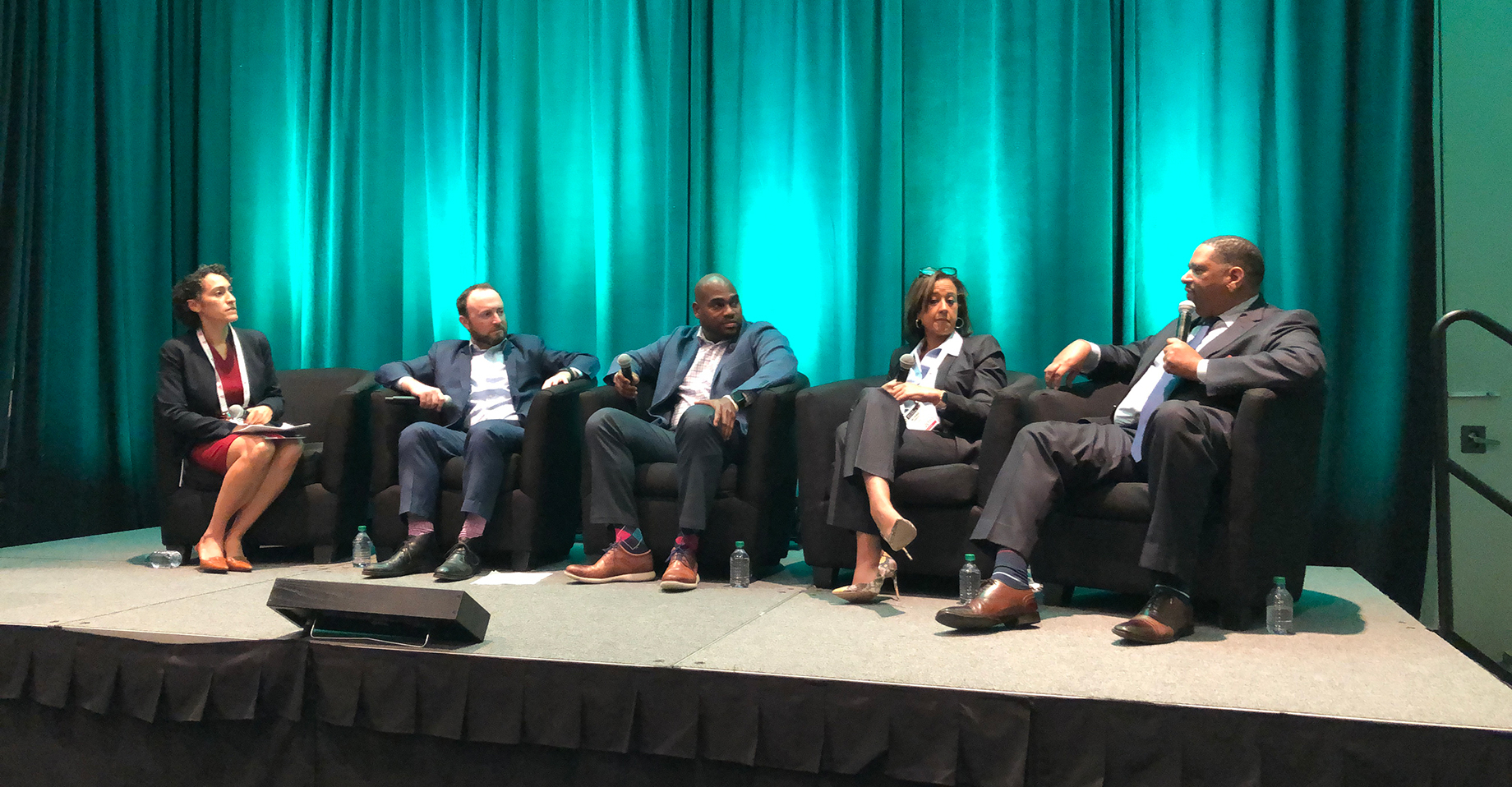Responsible urban revitalization calls for engaged local communities and flexible partnerships among developers, nonprofits and public-sector officials, said executives at ICSC’s New York Deal Making today. Engaging with the community early and often is crucial, said those leading a panel discussion titled “Gentrification Without Displacement — Is it Possible?”

Larisa Ortiz of Streetsense, Aaron Koffman, Terrence Maiden, Myriam Simmons and Keith Sellars at ICSC New York Deal Making
Terrence Maiden, CEO of the Dallas-based Russell Glen Co., said his firm held roughly 50 meetings with local community leaders at the onset of the planned transformation of a 1970s-era Dallas mall into a mixed-use center. The goal was to solicit feedback and to combat the perception that gentrification displaces local culture, he said.
“Don’t go into a community assuming what they need,” Maiden said. “We found that people need jobs, so we’re adding office users to one floor.” The project, formerly called Red Bird Mall, has also signed up three medical uses, including a 150,000-square-foot facility. The city of Dallas gave the project about $24 million to help avoid raising rents and displacing area businesses during the redevelopment, he said.
“Give them access, face time and accountability”
Local communities are often justifiably concerned about displacement, when pre-existing culture and residents are pushed out and replaced by a new development, according to Myriam Simmons, director for credit and incentives consulting at Dallas-based Ryan. “It doesn’t have to push the inner city out and replace it,” Simmons said. “Tax credits help stop the pushing out, [and] can make things new without pushing out.” Developers and retailers should also be creative about the best use of tax credits, urged Simmons, citing Whole Foods, which used tax credits to open stores in Detroit and New Orleans.
Avoiding displacement involves including the community, said Aaron Koffman, a principal at the New York City–based Hudson Cos. “Give them access, face time and accountability,” he said. “That will give us more business when new city competitions come up.”
Hudson Cos. is developing La Central, a sprawling affordable-housing development in the Bronx, N.Y., that is to include retail, recreational spaces and community facilities, and which is being undertaken by five developers and two nonprofits. “We’re leaving no square foot unturned for children of the neighborhood,” he said.
“You can’t stop capitalism”
Koffman said his firm wants to fill the ground floors of residential properties with tenants that are affordable and accessible to the neighborhood. The firm also seeks local tenants looking to expand into secondary locations rather than relocating from existing ones.
Cities should use incentives instead of restrictions when trying to influence retail development, said Keith J. Sellars, president and CEO of Washington DC Economic Partnership. “You can’t stop capitalism,” Sellars said. “The public sector should be more amenable to the kinds of development they want, versus limiting expansion.” In the District of Columbia, the city provides loans for businesses along certain major thoroughfares in need of facade or technology upgrades, Sellars notes, and he advises: “Keep pushing that you’re a resource for small business.”
By Brannon Boswell
Executive Editor, Commerce + Communities Today


